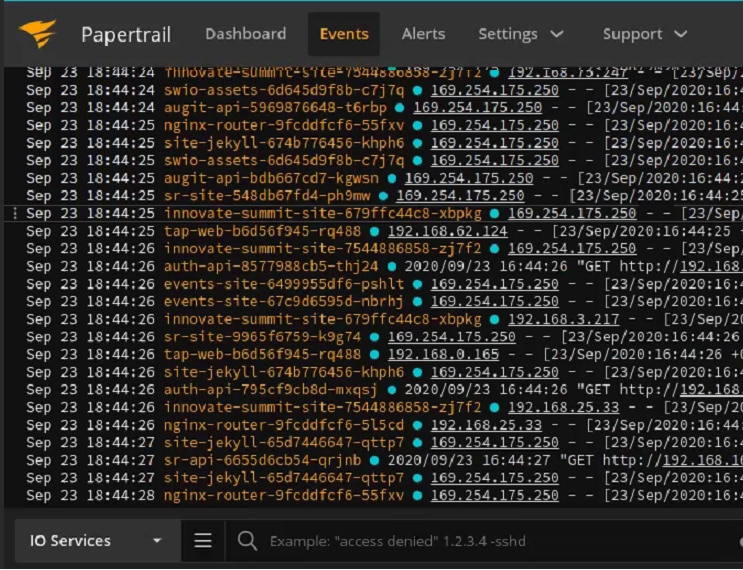The SolarWinds® Papertrail™ team is excited to announce SolarWinds rKubeLog, an open-source project designed to streamline Kubernetes logging. rKubeLog allows you to forward logs to Papertrail from within a Kubernetes cluster without using a daemon or setting up application-level logging or a logging sidecar.
What is rKubeLog?
rKubeLog is a quick and easy way to implement logging for applications running in Kubernetes clusters. Using the Kubernetes Control Plane API, rKubeLog fetches logs from all the services running in the cluster, tags them, and forwards them directly to Papertrail.

Why is rKubeLog a great option for Kubernetes logging?
- Compatible with any Kubernetes cluster: This includes nodeless Kubernetes clusters, such as AWS EKS on Fargate
- Dynamic: Automatically picks up new deployments in the cluster and drops old ones
- Simple to deploy: No sidecar, agent, daemon, or additional logging service needed
- Easier to manage: No need to worry about running out of storage, rotating logs, separating log streams, or increasing resource consumption due to logging
- More cost-effective: No need to pay for additional storage or resources to accommodate a logging sidecar, Fluentd, an agent, or a daemon
Give it a try
To learn more about how to access, set up, and use rKubeLog, read the rKubeLog article in the knowledge base. Try it for yourself and let us know what you think.